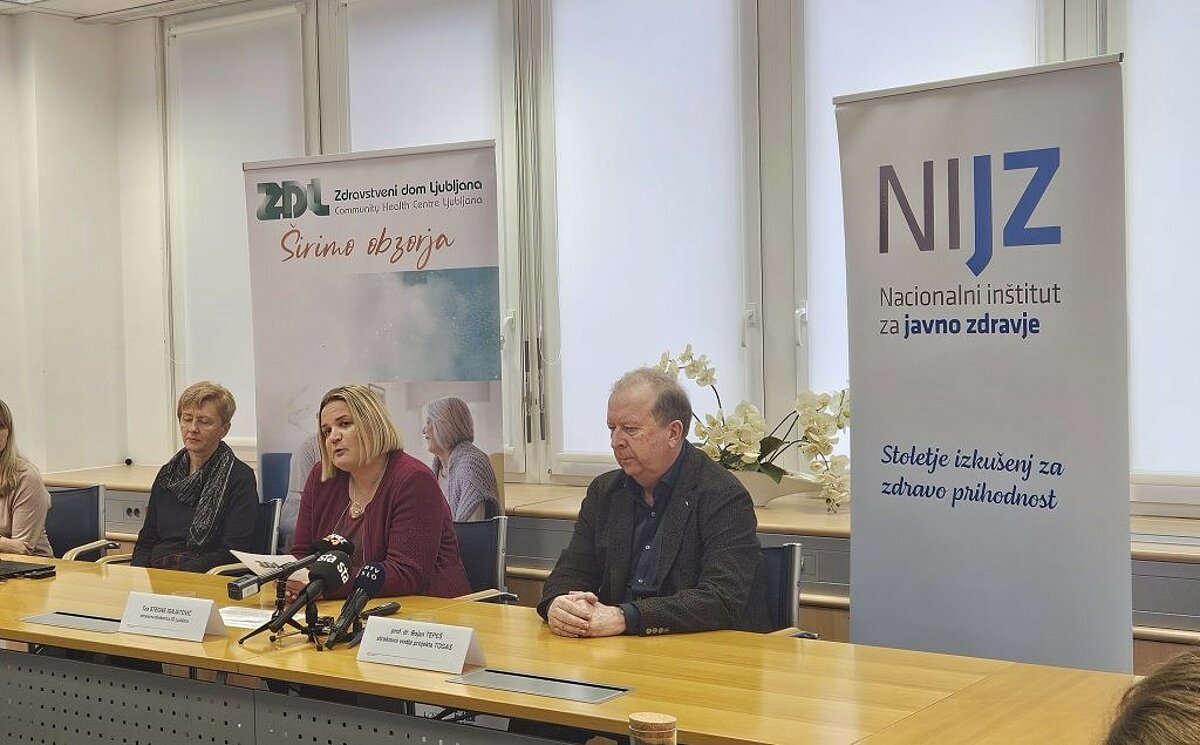
"The program of screening for H.pylori infection and treatment of the infection is a scientifically proven effective and cost-effective approach to the prevention of gastric cancer, which is also recognized by SAPEA and the European Commission," emphasizes prof. Bojan Tepeš MD, PhD, scientific director of the Pilot 1 study.
Prof. Bojan Tepeš, MD, PhD, scientific director of the Pilot 1 study, emphasized at the press conference that: "The biggest problem is that 80% of those infected with the H.pylori bacteria do not have any symptoms or signs of the infection, so early detection of the H.pylori bacteria is crucial to reduce the risk of gastric cancer and other related health problems. In Pilot study 1, which will be conducted by NIJZ, 6,000 insured persons of Community Health Centre Ljubljana will be invited to detect and treat H.pylori infection. It is important that all young people who receive an invitation, respond to it."
Pilot screening tests for H.pylori infection will be carried out in the Community Health Centre Ljubljana as part of the TOGAS project. A group of young adults (6,000 patients of ZD Ljubljana between the ages of 30 and 34) will be invited to participate in the research. They will be tested for H. pylori and treated, if the result is positive for the infection. A confirmed and treated H. pylori infection can significantly improve the health and well-being of an individual whose infection causes various gastric problems. In the long term, curing H.pylori infection reduces the possibility of gastric cancer by up to 89%.
Tea Stegne Ignjatovič, MD, scientific director of the ZD Ljubljana, spoke about the importance of ZD Ljubljana’s participation in the TOGAS project and added: "In ZD Ljubljana, we believe that projects and research in primary health care and the introduction of innovations significantly increase the quality and professionalism of our patients' medical care. Thus, in projects to date, we have successfully tested the implementation of telemedicine services and introduced a lay consultant. In February 2024, in cooperation with the NIJZ, we will start the first international clinical research in our Centre under the name ‘Test and treat H.pylori for the prevention of gastric cancer’. With this research, for the first time in the EU, we will test a gastric cancer screening program with screening tests for the H.pylori infection."
The project has received funding from the European Union programme EU4Health under Grant Agreement No 101101252
Funded by the European Union. Views and opinions expressed are however those of the author(s) only and do not necessarily reflect those of the European Union or European Health and Digital Executive Agency (HaDEA). Neither the European Union nor the granting authority can be held responsible for them.
 CONFERENCE
CONFERENCE